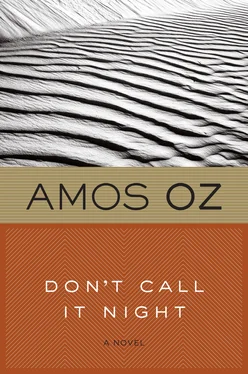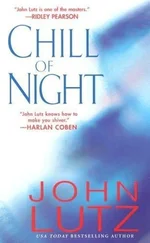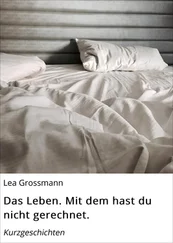He prepared supper by himself: You're tired, Noa, sit down, watch the news. He made an onion omelette, produced a geometrical salad, sliced some black bread and served it on a wooden board with some cheeses, and radishes that he had carved in the shape of rosebuds. Then he waited for my admiration as if he were Count Tolstoy who had once again deigned to light the stove in the hovel of one of his serfs.
After the news he put the kettle on, made us some herbal tea, placed a cushion under my head and another one under my feet and put a record on. Schubert. Death and the Maiden. But when I picked up the phone and called Muki Peleg to ask if the memorandum was typed yet, and Ludmir and then Linda to sort out something to do with the planning permission, his generosity ran out and he got up, cleared and washed the dishes, and shut himself in his room, as though I were liable to chase after him. If it hadn't been for this demonstration I might have had a shower and gone to him, to tell him what had happened, ask his advice. On the other hand, I'm not sure I would have done. He's hard to take when he gets going — he knows exactly what's wrong with our project and what I should never have said to whom — and even harder when he says nothing and listens, trying not to let his attention wander, like a patient uncle who has decided to devote some precious moments to listening to a little girl explaining what it was that frightened her doll.
At quarter past ten, after I had taken a cold shower and then a hot one, had collapsed on my bed and was trying to concentrate on a book about the symptoms of addiction, I half-heard from his room the sound of the BBC. The World Service. Recently, like Menachem Begin in his years of seclusion, he has taken to tuning in to London every night. Is he on the lookout for some item of news that they're keeping from us here? Or searching for a different perspective? Or using the broadcast to talk to himself? Maybe he's only trying to get to sleep. His insomnia infiltrates my sleep and robs me of the few dreams I might have had.
Later, groggy with tiredness, when I'd abandoned my glasses and the light and the book, I could still catch the underwater sound of his bare feet in the passage, no doubt on tiptoe so as not to disturb me, and the refrigerator opening and the faucet running and the lights being systematically switched off, and the apartment being locked up, his stealthy nocturnal wanderings that year after year have made me afraid a stranger has broken in. Some time after midnight I thought I sensed his touch on the door and I was so exhausted that I nearly submitted to his sadness and said yes, but he was already tiptoeing away down the passage — perhaps he had gone out onto the balcony without turning a light on. He likes the balcony on the summer nights. Or perhaps there was nothing, the footsteps, the touch on the door, his wall-piercing sadness, it may all have been mere fog, because I was already asleep. I had had a hard day and tomorrow after school there's another meeting at Muki Peleg's and I may have to go to Beersheba to try to finalize the planning permission at long last. I must get some sleep and try to be even more wide-awake tomorrow than I was today. Tomorrow is another hard day. And there's the heat. And the way time flies.
THIS time it did not go straight past on the other side of the wall, up to the next floor, but stopped with a faint scratching sound, and at once slammed and continued on its way. Cold and silent, a gecko, stony-eyed in the darkness, watching a colourful insect fluttering in the light, that is how I receive her: the swish of her skirt, the electrical impulse of her will before she moves, then the motion itself, the rumour of her heels between the door of the elevator and the door of the apartment the lock already turning: as always, with no fumbling, the key slips straight into the slot.
She went from room to room, talking in full spate, voice young and bright, abandoning the ends of her sentences, she crossed the apartment from one end to the other, turning on lights one after another in the hall, the kitchen, the toilet and above my head in the living room, wafting a trail of honeysuckle scent and setting up a row of electric lights in her path as though to illuminate the runway for her landing. The whole apartment screwed up its eyes, dazzled.
When she reached me she dropped her shopping basket and her briefcase and two overflowing plastic bags on the coffee table and asked: Why are you sitting in the dark, Theo? And she answered herself: You fell asleep again, sorry I woke you, actually you should thank me, otherwise how would you get to sleep tonight?
She bent over me and gave me a hasty comradely kiss on my hair, then removed my bare feet from the coffee table and made as if to sit down next to me, but no, she kicked off her shoes, whirled round in her light skirt with the blue pattern of diamonds, and flounced off to the kitchen, came back with two tall glasses of mineral water saying, Dying of thirst, drank, wiped her mouth with the back of her hand in a childlike gesture and said, What's new? She leaped up again to switch on the TV and only then did she sit down for a moment on the arm of my chair, almost leaning on me but not really leaning, she pulled her blonde hair away from her eyes as though drawing back a curtain, and said, Let me tell you what a crazy day I've had.
She stopped. She suddenly slapped her forehead and leaped away from me to the other armchair, saying, Sorry, Theo, just a minute, I must just sort out a couple of quick phone calls, do you feel like making a salad? I've had nothing to eat since this morning apart from a falafel, I'm starving, I'll only be a minute or two, then we'll talk. She pulled the telephone over onto the curve of her lap and held it there for an hour. While she was talking she wolfed down the supper I made and served her without noticing, alternating suggestions, feelings and snap judgments, munching the food only in the pauses when she permitted her interlocutors to defend themselves. I noticed that she said several times, Come off it, You're joking, and also, What the hell, Come on, Don't make me laugh, and Great, Perfect, Grab it with both hands. Her hands are much older than the rest of her, her labourer's fingers wrinkled, the skin shrivelling, the back of her hand with its crisscrossed blue blood vessels and patches of pigment resembling a clod of earth. As if her true years have been temporarily driven back from her body to her hands, where they are patiently building up their reserves of decay in readiness for some weakening.
Then through the bathroom door for twenty minutes I could hear the jets of water and her young voice singing a song from years back, about a white rose and a red rose, followed by the sounds of the hairdryer and a drawer being opened. She eventually emerged scrubbed and scented, in a light blue cotton bath robe, and said, I'm whacked, I'm knocked out, let's talk in the morning. She did not seem tired to me, but lithe and fetching, her thighs alive and breathing under the light bath robe, as she said, Good night, Theo, don't be angry, don't stay up late yourself. And again she said: What a crazy day I've had. And she closed the door behind her. She rustled the pages of a book in there for a few minutes and apparently she came across something amusing that made her laugh softly. A quarter of an hour later she switched the light off.
As usual she had forgotten to turn the shower faucet right off. I could hear water running from where I was in the hall. I went and turned the faucet as hard as I could, put the cap back on the toothpaste, turned the light off in the toilet, and went right round the apartment turning off the lights after her until there were none left on.
She has this gift of falling fast asleep in a moment. Like a popular little girl who has done her homework, tidied her desk, remembered to brush her hair and confidently believes that everything is all right and everybody is happy with her and tomorrow is another day. She is so much at peace with herself, with the darkness, with the desert at the end of the garden beyond the two thick cypresses, with the sheet that she has wound round her and the embroidered cushion that she clasps tightly to her chest in her deep sleep. Her sleep arouses a sense of injustice in me, or perhaps it is just plain jealousy; in the midst of the anger it is clear to me that there is no reason to be angry, but this knowledge does not quell my resentment and simply irritates me all the more.
Читать дальше












